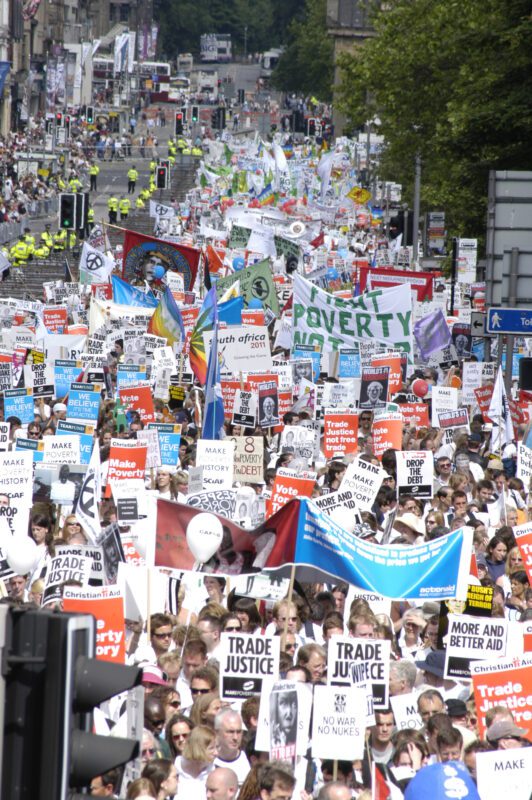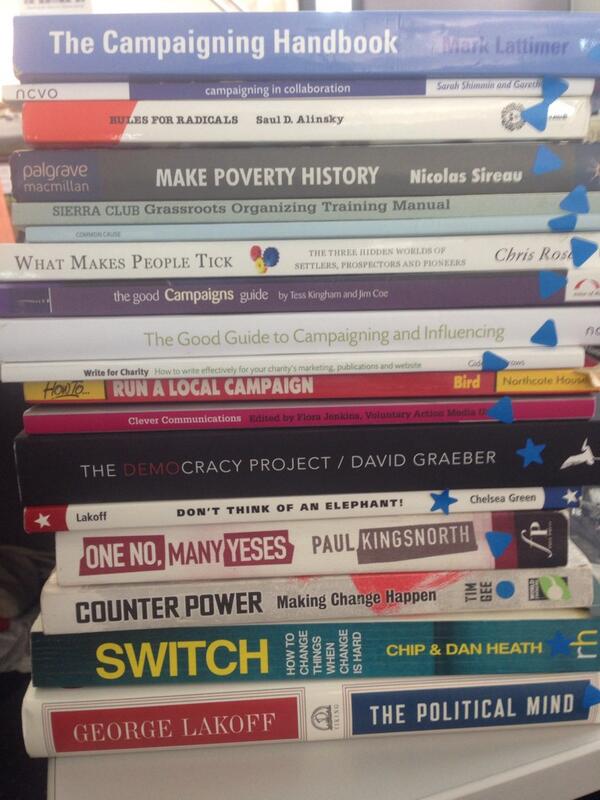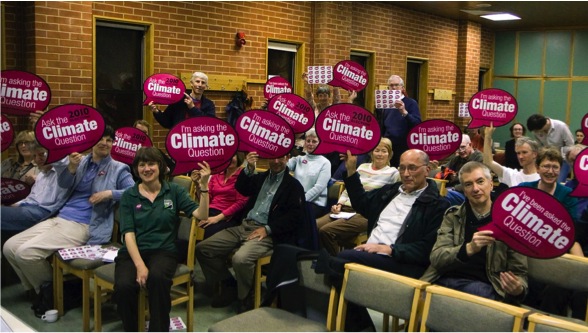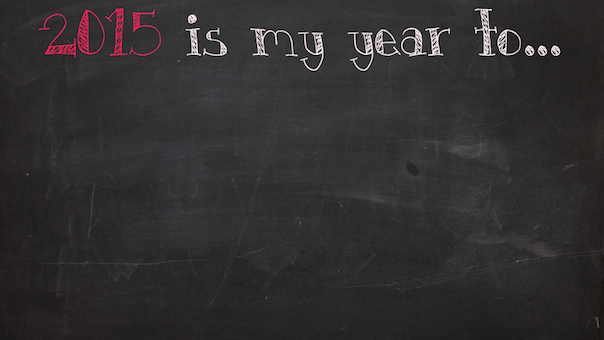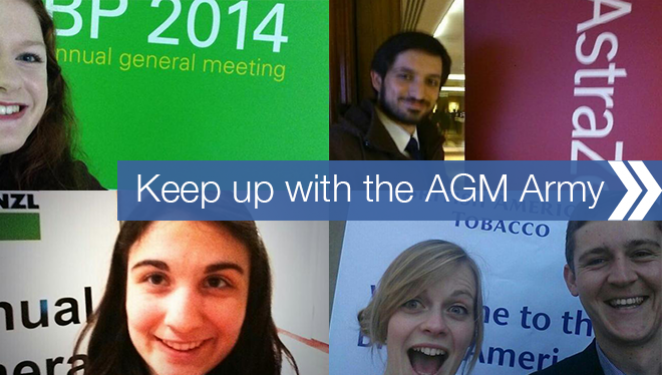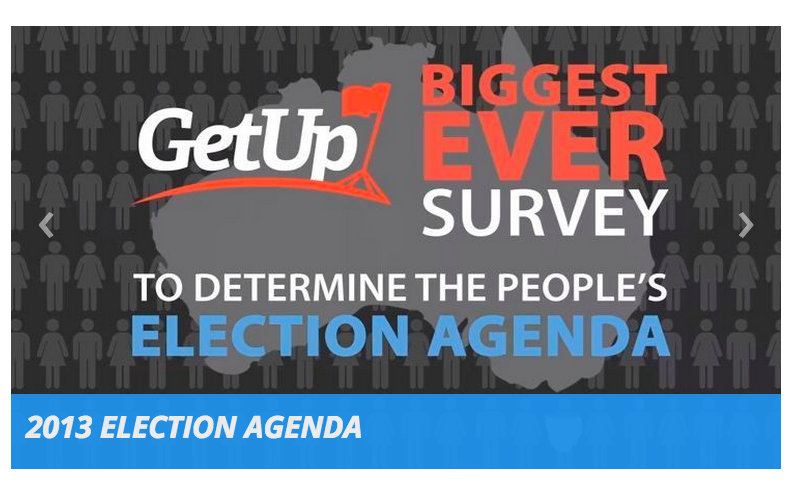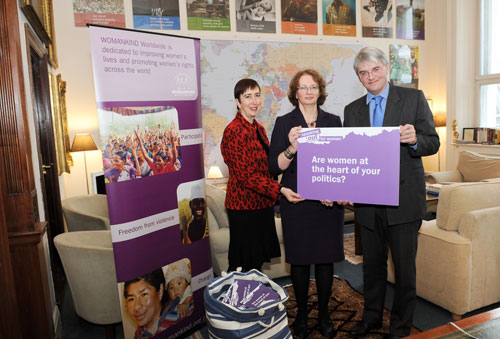I love working in coalition (which is perhaps why I’ve ended up working at Bond!).
I’ve lost count of the number of coalitions that I’ve been involved during my campaigning career, but from End Water Poverty, to Make Poverty History, via Turn Up Save Lives. I get a buzz from bringing people together to achieve more through our shared endeavours that we can achieve on our own (h/t the Labour Party membership card!)
But ask most campaigners about working in a coalition and you’ll normally experience a sharp intake of breath before being regaled with some horror story of the challenge of working with others, but it doesn’t have to be like that!
Here are a few tips I’ve found helpful;
Build relationships – throw any group of individuals together for the first time, that doesn’t mean you need to become best friends with everyone in the coalition, but taking time to get to know people, what’s brought them to this work, what makes them tick will always accelerate the effectiveness of your coalition.
Trust matters – research shows that the most effective coalitions where those involved experience high degree of trust. It’s not easy to build trust quickly, it comes through working together, going through adversity, pulling off the unexpected, but healthy coalitions are ones where those involved trust each other.
Be clear on the structure you need – there are a huge number of ways you can go about structuring your coalition, but finding a model that feels like its going to work really helps. With Turn Up Save Lives we’ve found that an informal coalition has been all we’ve needed, but in other campaigns a more formal structures has been really helpful. And remember, that the model you start with can change during the lifespan of your coalition!
Keep perspective – It can be easy to read too much into the actions of others in a coalition, and see every action as part of a vast conspiracy theory, sometimes its is, but my experience that more often than not that’s not the case. More often than not its a mistake than a conspiracy.
Build a diverse coalition – this is a mantra that’s been drummed into me from the first campaigns I was involved in. Diverse coalitions that bring together people or organisations who don’t normallly work together have impact. Remembering that by working together in a coalition doesn’t mean you have to agree on everything else you do.
Make it easy to collaborate – most people coming into your coalition are already busy, so finding the tools that help facilitate this really help. Setting up Google Groups is often a brilliant way of doing this, having regular conference calls (I use PowWowNow a lot!) and if possible getting people together in person.
Find the coalition builders – We exist, we’re often the people you’ll spot trying to make connections between different people or groups or who will pick up the action points that no one else is keen to take on. Make sure you’ve got a few of us involved in your coalition from the start!
End it when it needs to end – too often coalitions keep going because ‘thats the way we’ve always done it’. The most effective coalitions I’ve been involved in have clear review points, and end when it’s time to end. Again if your coalition achieves its original aim doesn’t mean you can’t form a new coalition for the next stage!
You might also be interested in this post – Working in coalition – learning from the last 10 years.
Questions campaigners should ask regularly
Been challenging myself to ask more questions. Here are a few I think I should be asking more often.
1 – What does ‘success’ look like? A fundamental question to ask regularly. The answer should have both a specific and detailed response, as well as a reflection on what you want your campaign to achieve in the long term.
2 – What has the real influence here? Who can deliver the change we want? Its easy to focus on campaigning towards a target we feel comfortable with, or we’ve approached before. A through power analysis should be central to any campaigning we do, and from that an informed strategy. I’ve always thought that the right target is whomever can wake up tomorrow and deliver your campaign ask.
3 – What do you really need from us? A question any organisations with resources should ask to those within its movement, campaigns often succeed because of the variety of voices working on a issue. Sometimes that’s in formal coalitions, where resources are distributed in formal ways, but even in more informal coalitions, ensuring that others partners in your movement have what they need is essential. The answer isn’t always money, sometimes its political insight, sometimes its practical resources or access to technology.
4 – Do we really need to campaign here? This might sound like a counter intuitive question, but launching a campaign should be a tactic if other more ‘insider’ approaches aren’t going to work, rather than an initial response. Why? Campaigning comes at a cost, it’s resource intensive, and often the success we’re looking for can be delivered by a well placed ‘insider’ interventions.
5 – What would we do with twice the resource? All campaigns operate in a resource scarce environment, where their are trade offs to be made, asking this question is a great way of checking that you’re allocating the resources that you do have the most efficient and effective way. If you’d do more on one thing that you’re already doing, then perhaps you should look to redistribute the resources you already have.
6 – What are we learning? What would you do differently next time? Finding time to evaluate in the midst of a campaign isn’t always easy, but by asking what you’d do differently helps to ensure future campaigns win. Planning times for quick evaluation should be at the heart of any campaign.
What questions would you add?
Campaigners #Shelfie – 6 books that should be on your reading list.
I’m often asked for suggestions of books campaigners should read. I could list hundreds, but here are 6 that I’ve found particularly useful in the last year. I’d love your suggestions and additions.
1 – The Power of Habit – you might be groaning under the weight of books available from authors like Malcolm Gladwell or Nate Silver. I’ve read far too many of them, but I found Charles Duhigg book is one of the most helpful. His book is full of insight about what makes us change our actions, and has a fantastic chapter on why Rosa Parks was successful and how movements start because of the social habits of friendship and grow because of the habits of a community. It’s also helpful if you’re trying to keep a new years resolution!
2 – Victory Lab – I’ve written before about why I think all campaigners should keep a close eye on what’s happening in the US to learn about approaches. Sasha Issenberg book is the best look at the data-drive approach that has been adopted across US politics. It’s a brilliant look at how the Obama campaigns and others have adopted microtargetting, testing and audience insight. Campaigners in the UK have much to learn on this and this book is a great introduction.
3 – A View from the Foothills – Campaigning is political, and its vital that every campaigner has a good idea of how politics work. To be honest, I’m sometimes time surprised about the level of political literacy that exists amongst some campaigners. if we want to win campaigns we need to know how the institutions we’re targeting operate. Chris Mullin’s diaries of his time as a MP and junior minister are one of the best reads out there, but you wouldn’t go wrong reading Alistair Campbell’s diaries either.
4 – Made to Stick – looking for ideas about how your communications can get traction, what the top brands do to ensure that you remember their adverts, then you need to read Chip and Dan Heath’s book. Its a practical, full of great illustrations and the principles will stick with you as you design your next campaign messaging.
5 – The World Is Not Ours to Save – this is a personal choice that I’ve found really helpful over the last year. Although its primarily written for faith-based activists, the premise of the book, that as activists and campaigners we need to recognise our limitations, and ensure we build in habits that allow us to rest and be refreshed is one I’ve found really helpful as I’ve been thinking about how I sustain a long-term career in campaigning. If you don’t find Tyler Wigg-Stephens book for you, perhaps try other authors who’ve written about spirituality and activism.
6 – How Organizations Develop Activists – A late entry into my list, but I adore this book. Hanhrie Han has done the legwork to work out why some grassroots groups succeed and others fail. I found myself changing from nodding in agreement to furiously scribbling down insight from Han’s study of two unnamed organisations in the US, for anyone who wants to think about how they can build a flourishing grassroots network . A good summary of why it works (or doesn’t) here and this by Jim Coe is a fantastic summary.
Using your voice as well as your vote – 7 things you need to know about election campaigning
I need to start with a confession. I’m an election geek! My fascination with elections has taken me to the US to campaign for President Obama and I know an unhealthy amount about the electoral systems in countries around the world.
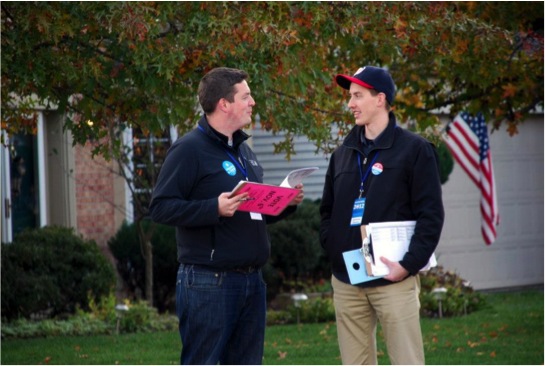
For campaigners, they’re hugely exciting – they engage people in politics and they’re opportunities to shape the agenda for the next government.
With just 120 days or so to go until the next UK General Election, there is a huge amount that we don’t know about what the outcome will be on May 7th.
That’s a huge opportunity and challenge for campaigners, we could get another Coalition Government, we don’t know which parties will end up in the TV debates, and what will happen in Scotland, with UKIP and the Green Party.
At the same time, election campaigns are getting more and more sophisticated, with parties using micro-targeting to reach specific groups, and social media working alongside the traditional ground game (think people knocking on doors) and air game (think TV news headlines).
For campaigners preparing for the election in May there are 7 things you need to be thinking about.
1 –Remember Charities can be political but not party political
Its too easy to think of politics as something that is just about different parties, but it’s not, politics is about the choices societies make and we have a stake in them being the right choices – including challenging vested interests.
If it wasn’t for campaigners engaging in politics, we wouldn’t have an arms trade treaty, equal marriage, climate change act, and much more.
Thanks to the Lobbying Act there is lots of talk about if charities should get involved in politics, but the short answer is yes.
As charities, you can’t engage in party politics, that is supporting one candidate over another, or providing an endorsement to one but not another, but we can, indeed we’re encouraged to engage in politics.
As we get ready for May, every campaigner should check out the guidance from the Electoral Commission on the Lobbying Act and the Charity Commission (Bond also has some helpful guidance) but that shouldn’t stop you from campaigning.
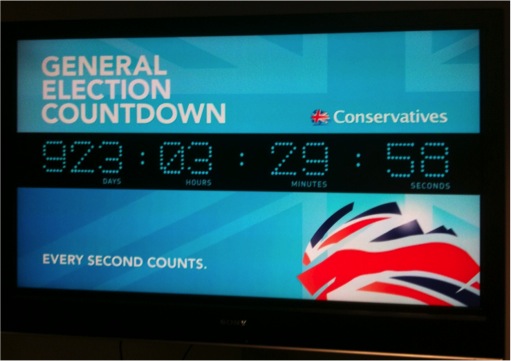
2 – Start now
Walk into the HQ of all of the main parties and you’ll see countdown clocks on their walls. For them the election has already started, and it’s got a fixed deadline – 10pm on May 7th, the point when polls close and nothing else can be done.
At the moment, in most constituencies’ candidates from any of the parties that hope to have a chance of winning will have been selected. For those candidates the most precious commodity they have is time, and as they get closer to the election, they’ll be thinking more and more about how they use their time to ensure they’re speaking to voters. Right now, candidates are busy, but not as busy as they will be in a few weeks time.
Come the ‘short’ campaign, which starts on 30th March, candidates are moving from one event to other, and they’re already starting to plan now for then, getting going now means your campaign has a chance of establishing itself before its just another event or activity in an already busy day.
3 – Everything is Local
There are few better ways of getting a sense of what people are thinking about than knocking on the doors as part of a party canvass, and as much as I’d like the top issues to be global poverty, climate change and world peace. More often than not its parking, poo, potholes, pavement and flytipping or welfare issues – housing, immigration, benefits. Occasionally global issues, but they’re rare.
For any campaign that means making your issues local as well, that could be making connections to local figures or events, ensure your statistics are localised or finding local figures to speak out in support of your issue.
Whatever you can do to demonstrate the breadth of local support for you campaign the better. Remember most candidates are thinking about events to attend alongside two axis the likelihood of those present actually voting and the likelihood of someone in the room voting for them, so make sure
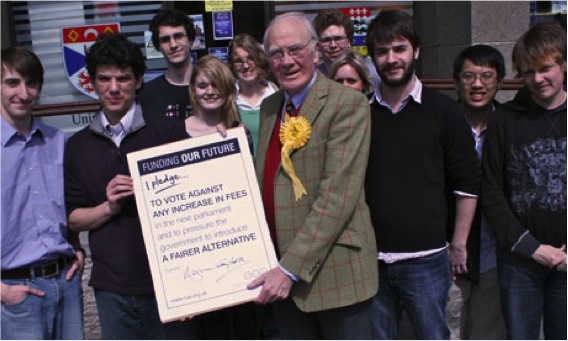
4- Make it Easy
Most candidates are keen to engage, they want to meet with voters, but remember they are time poor, so make it easy for them to engage with you and also their office staff. Behind ever candidate is a team who will be working hard and often making the decision about what events the candidate does and doesn’t attend.
Provide candidates with something in return for engaging with your campaign, the opportunity to meet local voters, a photo they can send to the local paper or thanks on twitter.
Also think about the medium of your message, most candidates will tell you that they’re already being inundated with emails and briefing papers, so what about video messages or infographic.
Finally, think about how they can really support your campaign – what can they actually do. Don’t ask a candidate to vote a particular way in Parliament if they’re not (yet) an MP.
5 – If they won’t come to you, go to them
One of the exciting thing about the upcoming election is I’m expecting more platforms that ever before to ask candidates the questions you want.
As well a the traditional hustings, often organised by local churches, this election most candidates are on twitter and looking to engage, local papers will run election specials, the growth of online localised communities holding ‘ask the candidate’ discussions or raising it when someone comes to knock on your doorstep. Whatever you can ‘get on the record’ now could invaluable come May 8th.
Heading into May, watching how parties respond to pledges is going to be interesting. Lots of campaigns ask candidates to sign pledge to show their support for an issue. It can an effective tool, but one I suspect many candidates will now approach with caution, especially as the possibility of a coalition government means MPs can be even less certain about what they can promise.
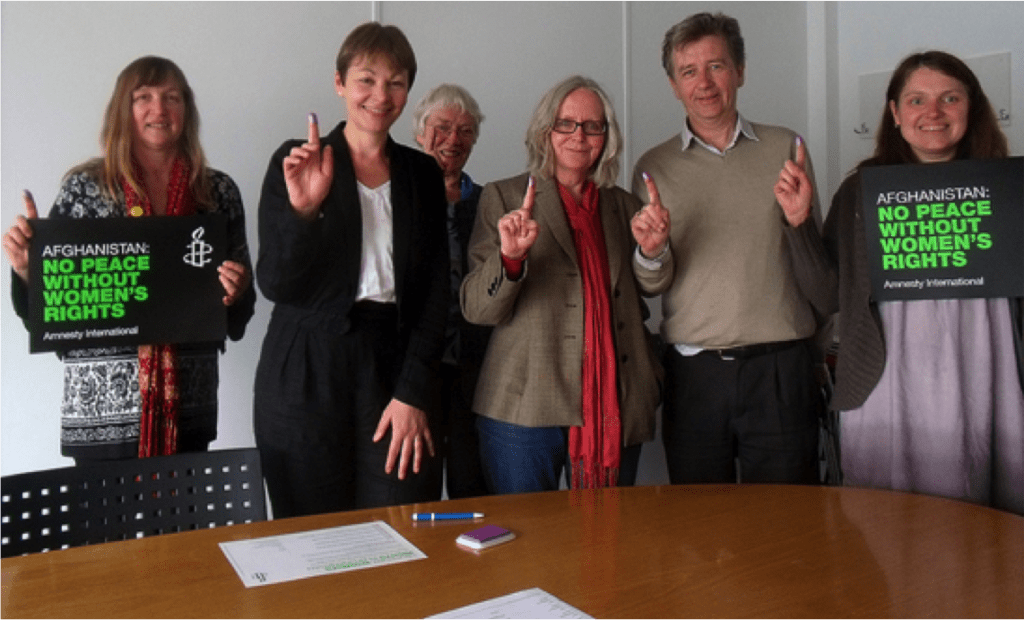
6 – Plan for May 8th
The election may be over, but the hard work for whoever is elected has just begun. Be ready to follow up with those who’ve been elected, politicians are often accused of only appearing near an election but can the same be said of campaigners?
Offer to come to meet with them to brief them on the issue, write to them, reminding them of what the said in the campaign and don’t overlook getting in touch with the candidates that weren’t successful – remember that they might be candidates in another election.
7 – Vote
I hope that most campaigners vote. I have a rule on election day, that you can’t show up to help get out the vote if you’ve not already voted. If we want to participate in campaigning, we need to vote. If your not sure you’ll be in your constituency on election day, sign up for a postal vote here.
Read, Reflect, Get a Mentor, Plan to Rest – 4 resolutions to make your a better campaigner in 2016
Originally posted in January 2015 but still relevant for 2016!
I’m terrible at keeping new year resolutions (if you want a campaigner who takes them very seriously check out Oxfam’s Al Kinley), but I’m a big fan of using the start of a new year to try to build new habits.
So as you get back into the office here are a few thoughts about steps that you could take to be a better campaigner in 20156.
1 – Read. A wise person once said to me that ‘leaders are readers’ its a maxim that’s stuck with me, and is part of the motivation for this blog.
In20156, make time to read about campaigns that are winning, trends that will impact your campaigning (Mobilisation Lab is a good place to start (and hopefully this blog)), what’s going on in politics (as a start sign up for daily emails from Labour List, Conservative Home, Lib Dem Voice plus Times RedBox) and be inspired by campaigners from the past.
But don’t just read things you agree with, take a moment to follow blogs and read newspapers that put alternative perspectives across. Don’t assume that everyone thinks the same as you and your colleagues, they don’t. Believe it or not, you could be a better campaigner by reading the Daily Mail.
2 – Reflect. When I started my new job in July, I penciled in my diary to take the forth Friday afternoon of each month to escape my desk and spend a few hours reflecting on what was working and wasn’t working. It hasn’t happened, although I’m going to try again in20156 with a less ambitious fortnightly lunch slot!
In campaigning, it can often feel like a luxury to take an hour or two to reflect and review on the last week, fortnight or month, but research shows that reflecting on performance actually improves your work. Why not start the year by booking in 30 minutes every 2 weeks to reflect on the following questions;
- What is your campaign doing well and what should you continue to do?
- What is your campaign doing ‘okay’ or badly and what can it improve?
- In what ways has your understanding about the situation deepened or changed?
- What have your learnt in the last fortnight? What areas are you being stretched in?
3 – Get a mentor. I’ve really valued those who’ve invested time in helping me be a better campaigner. I’ve found meeting with someone on a regular basis, about once every 4 to 6 weeks for an hour or so over coffee, has really helped me in my career. I find a mentor is someones brain I can mine for ideas, someone who can help me see the bigger picture or coach me through a particular challenge I’m facing.
It can feel intimidating trying to identify a mentor, it could be someone more senior in your organisation (probably in a different team), a campaigner you admire or someone working in a related area you’re keen to deepen your experience in. Start out by suggesting you trial it for 3 months and take it from their, you’ll be amazed that people like to say yes when you ask them
4 – Plan to Rest. You might feel rested after a Christmas break with a few long lie-ins and quiet days, but book your next break now, and make a strategy for how your going to switch off from your work over the next year. We need you to be involved in the work of delivering social change for at least the next 12 years, not just the next 12 month, and sadly too many of us burnout. I love these resources from the team at Plan to Thrive, I can’t commend this article from Rockwood Leadership enough on how to develop good habits to avoid burnout and I’m a big fan of encouraging everyone to take a retreat.
14 great reads for campaigners from 2014
Settle in with a cup of tea, here are 14 great reads (in a rough order of how much I enjoyed them) that I’ve shared during 2014 that a worth a read.
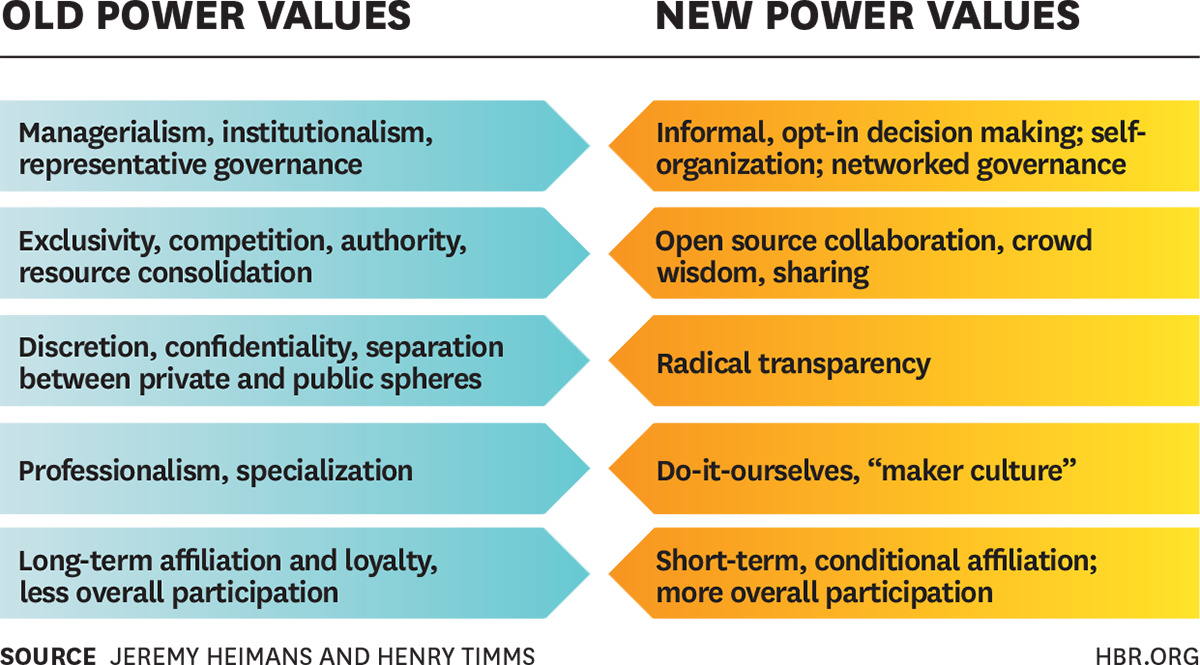
1. Understanding New Power – brilliant from Jeremy Heimans and Henry Timms on how the world is changing. A must read (great summary in the graphic above).
2. Changing Trends: New Power, Neuro-Campaigning and Leaderless Movements – just love this paper on key campaigning trends from Hannah and Ben.
3. Purpose Driven Campaigning – 40 key principles for growing social movements drawn from Purpose Driven Church.
4. When the pillars fall — How social movements can win more victories like same-sex marriage – brilliant look at how same-sex marriage advocates in the US build a movement to win.
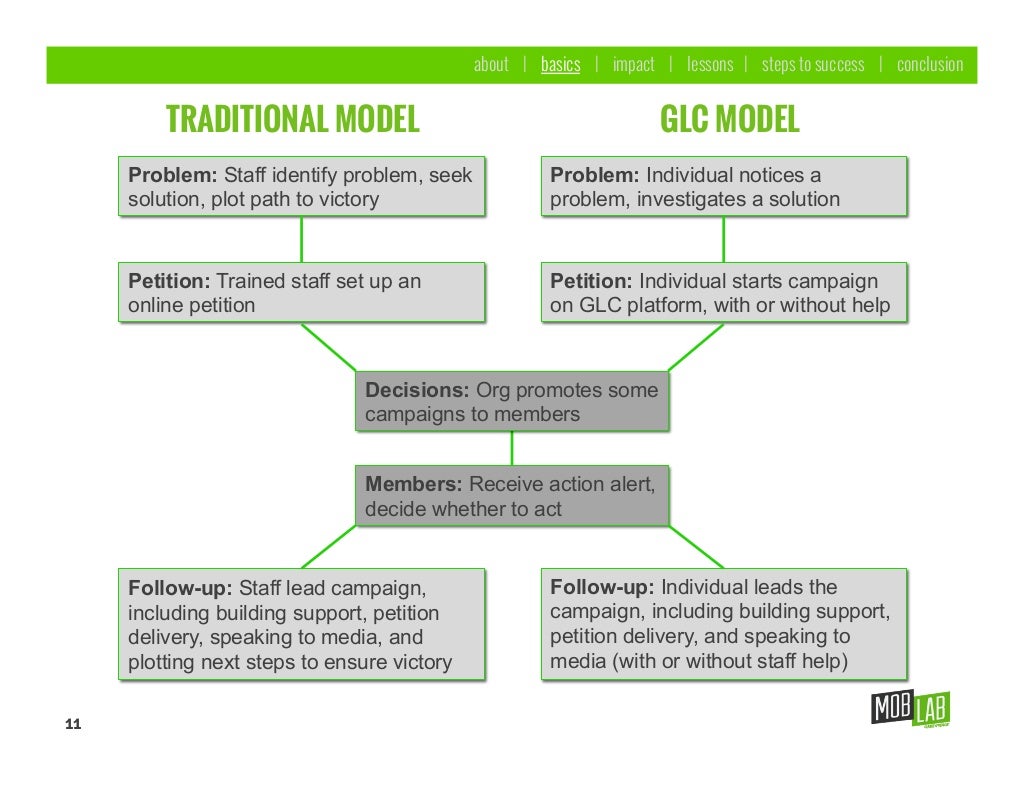
5. Grassroots-led Campaigns: Lessons from the new frontier of people-powered campaigning – brilliant MobLab report full of wisdom and insight of the people at the cutting edge of grassroots-led campaigns (GLC model in the graphic above). Basically anything MobLab writes is brilliant.
6. From fired up to burnout: 7 tips to help you sustain a life committed to social justice – offered without comment.
7. 6 things today’s breakout campaigns get right – great insight from the always brilliant Jason Mogus
8. “More of an art than a science”: Challenges and solutions in monitoring and evaluating advocacy – also enjoyed this by Jim Coe.
9. Stonewall’s secrets of successful charity lobbying – top tips from one of the best (also learning from Greenpeace here).
10. From Petitions to Decisions – how change.org is continuing to innovate.

11. Inside the Cave – a look at the digital and technology behind the Obama 2012 campaign (and here is more on how the campaign used twitter)
12. The Art of Coalition Campaigning – brilliant set of reflections from Ben Niblett.
13. 14 lessons from the Scottish referendum – useful reflections from the UK political event of the year (more here)
14. Rage Against the Machine – Lessons from Guzzardi–Berrios Race – how a 26-year-old former journalist organised to get elected in Chicago. Great lessons about working with the grassroots (and here on how to lose your seat when your a high-profile US politician).
Winning in 2014 – 7 great campaigns from the last year
Owen Jones is spot on, 2014 is the year that grassroots campaigns like E15 Mums have taken on the powerful and won, but here are a few of the other campaigns that have impressed me in last 12 months.
1 – AGM Army – Share Action – this small team are building an army of shareholder activists who are become the scourge of corporates, with their AGM Army turning up at annual meetings across the year, calling on Tesco to commit to a Living Wage to asking Greggs about animal welfare, I love how they’re taking a campaigning approach that has existed for year, and with digital tools and good old fashioned training helping to show that the simple act of owning a share gives huge influence. This article is a great summary of what they’re doing.
2 – Towns Against Tax Dodging – Action Aid – I’ve had a long-held admiration from the innovative and creative approach that the team at Action Aid take, from tax to biofuels, I get excited when their latest mailing arrives on my doormat, I love their smart campaigning thinking about new targets and approaches, rather than simply focusing on the traditional trinity of MPs, Whitehall and the UN. The recently launched Towns Against Tax Dodging is a brilliant way example of this.

3 – Rainbow Laces – Stonewall – Off the back of a huge victory on Gay Marriage last year, you might have expected them to take some time to reflect on what’s next (although if you know any of the team you’d have known that was unlikely to be the case, instead they come back with innovative new campaigning , like Rainbow Laces, focusing on kicking homophobia out of football, partnering with Paddy Power to send laces to every Premiership team. The ability to bring the voices of well known brands into their campaigning is seriously impressive.
4 – Unmute – Which – I’m continually impressed by the tone and approach of the campaigns from an organisation focused on being a consumer champion. They mix it up with a range of approaches, for example with the Unmute campaign which mobilised 50,000 to unlock a exclusive track from George The Poet, unlike many organisation that has been campaigning for years, they seem to have been able to adapt their approach to mirror the membership and consultation approach that has been pioneered by digital platforms.
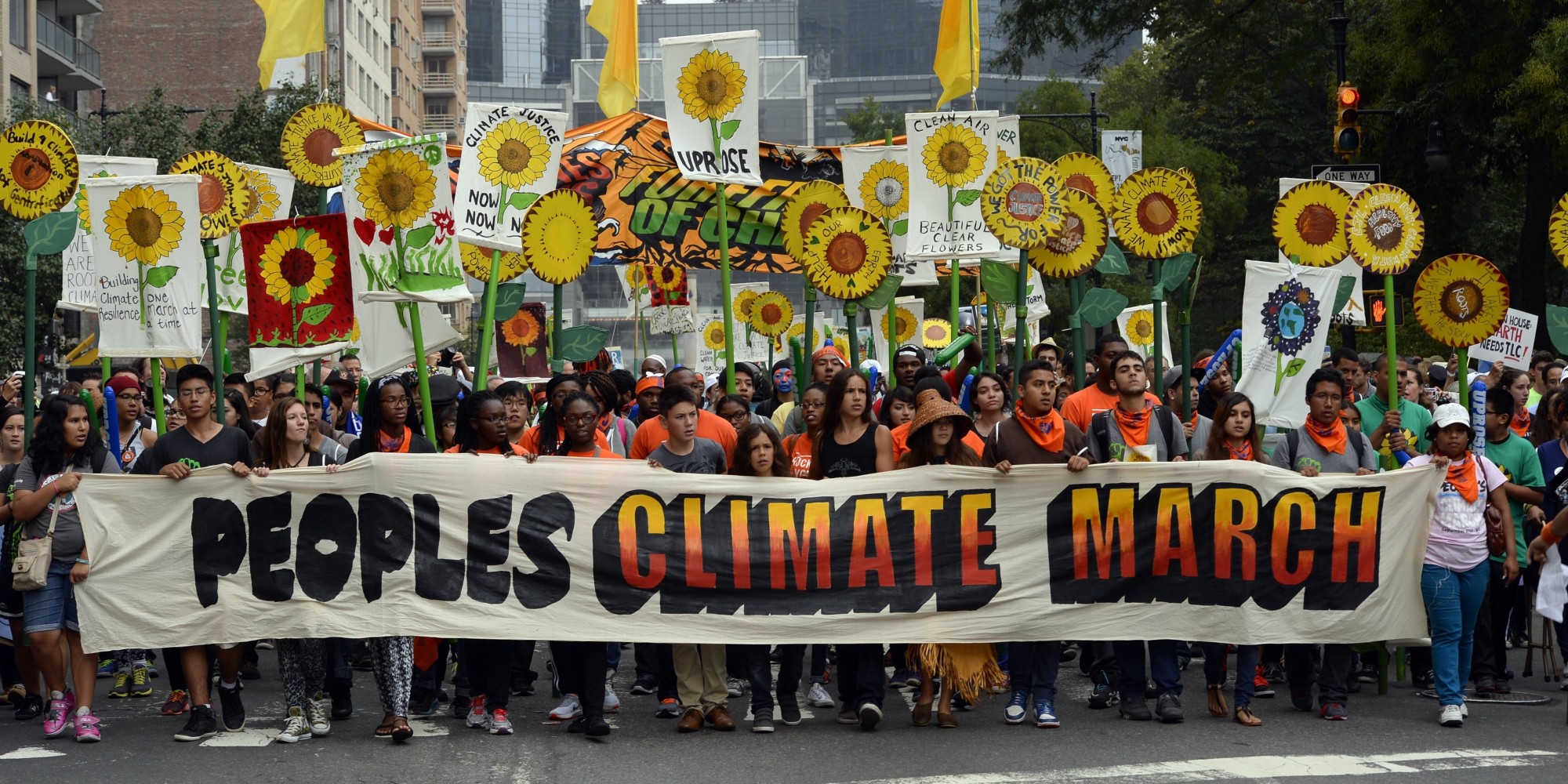
5 – People’s Climate March – 350.org – one of the organisations behind the People’s Climate Marches in September which seem to have reenergised the climate movement. I’ve been a long time fan of the approach which seeks to blend the best of community organising and digital activism across so many countries.
6 – Stop TTIP – 38 Degrees – perhaps a predictable choice, but I’ve been seriously inspired by the way that they’re building an organisational model that takes the best of their digital platform and allows them to mobilises offline as well as quickly online. Getting 10,000 people out in September to campaign on TTIP is just the latest example of this approach, it’s easy to be critical of ‘clicktivism’ but they’re showing that the approach can be used to do so much more.
7 – Space for Cycling – London Cycling Campaign – who used local elections in London back in May to target candidates with ultra-local campaign asks sourced from their supporters for each of London’s 629 election wards, an impressive achievement combined with a brilliant website, helping to ensure their asks got traction with candidates across the capital.
Looking 'down under' for campaign inspiration
When it comes to 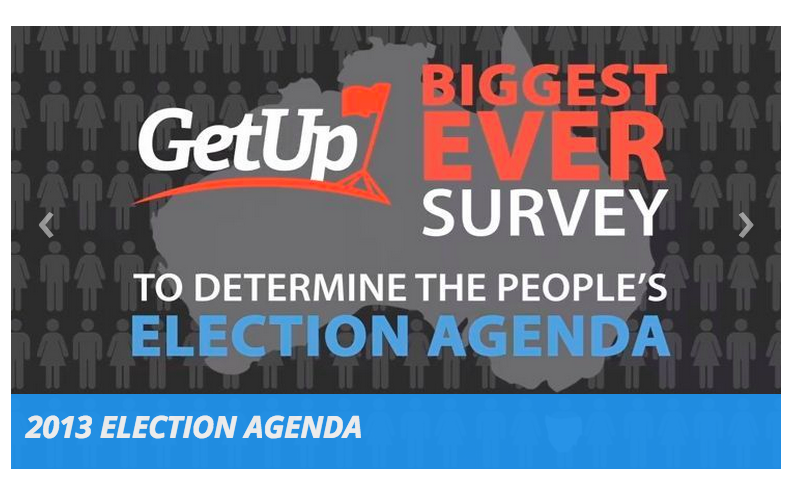 elections, campaigners in the UK get very excited about the one happening ‘across the pond’ in the US.
elections, campaigners in the UK get very excited about the one happening ‘across the pond’ in the US.
I’m one of them, and even 6 months later give me an article on data driven campaigning that helped Obama to win and I’ll be the first to read it.
But is it time for us to stop looking west for campaign inspiration and instead start looking ‘down under’?
The Australian elections might not have the glamour of the US but in many ways the comparisons between our political systems are closer, two main parties but plenty of feisty smaller ones, a constituency system with the leader of the biggest party in Parliament forming a government and an active campaigning sector.
While there are clear differences, most notably in Australia voting is compulsory, any smart campaigner could do worse than follow the soap opera down under for the next 4 weeks ahead of the polls on 7th September to get some clues about how we might plan to influence the 2015 election here in the UK.
Here are 3 things that have already caught my eye in recent days;
GetUp! Live Webcast – The Australian equivalent of 38 Degrees are, as expected, making a big deal of the elections. I’m sure we’ll see lots of new ideas from them in the coming weeks, but I love how they’re starting by hosting a nightly weekly live webcast for their supporters to bring them the latest on what they’re doing and how the community can get involved (you can watch at 9.30am here in the UK).
Learning from failure – The Centre for Australian Progress is playing a key role in coordinating groups and organising war rooms to help bring campaigners together. They’ve already planned to organise a FailShare to bring together groups that have been involved in campaigning around the election to learn from what didn’t work. The appetite to learn from what didn’t work as well as what did is brilliant.
Engaging the grassroots – I’m biased on this, because I’ve been working with groups like Micah Challenge Australia for a number of year, but as well as the exciting and responsive digital campaigning, development groups have been coming together to form ‘Movement to End Poverty‘ with the aim of getting the issue of development aid on the agenda of the parties, focusing on local events as well as petition signatures.
I’ll be keeping an eye out from other campaign lessons from Australia in the coming weeks. Do share what you’re discovering.
What I learned at Campaign Bootcamp…
Last week was one I won’t forget in a long, long time. Together with a group of wonderful friends, I helped to organise and run the first every Campaign Bootcamp (the video below shows a little of what we got up to).
[youtube=http://www.youtube.com/watch?v=YlnC_ImKfbY&w=560&h=315]
It was a dream that took almost a year to bring together, and is one of the main reasons that this blog has been so quiet in the last 6 months!
The idea was simple, take 30 of the most talented and energetic emerging campaigners committed to building a more just, fair and sustainable country from across the UK and give them a week of training from some of the very best in the campaigning business, but also allow them to put those skills into practice in real-time.
We had so much fun, and I’m incredibly excited about what we’ve started, but being at Bootcamp also taught me some invaluable lessons that I think might be useful for other campaigners to reflect upon.
1 – Let’s talk about power. It’s all too easy to dive right into learning about exciting new tactics. But we devoted the first day to understanding power and how change happens. It’s an issues I know that is a critical part of any training you might do with those involved in community organising, but something that I know I’ve been guilty of rushing over when I’ve run campaigns training before. Ensuring every campaign has a clear and robust theory of change is critical, but something we perhaps incorrectly leave to those who are more senior or have greater experience.
2 – Practice makes perfect. One of the central components of Bootcamp was running a scenario which participants had to run a campaign on. In real-time they we’re expected to write emails, build websites and consider how they should adapt their strategy to changes in the scenario.
Some might see it as a giant game, but last week I saw it as an invaluable way of learning how campaigners react and respond under pressure. I saw it teach valuable lessons, and would encourage any campaigns team to put time aside to learn from the experience and ‘stress test’ there systems and structures before a real campaigning example does.
3 – Being deliberate about building community. Nothing builds a sense of community like going away together for a week. Now that might not always be possible but the value of eating, learning and relaxing together, rather than all packing up at 6pm each day and heading our separate ways built a real sense of community. As a team we were also deliberate about wanting to ensure we had a cohort of participants from across different campaigning communities together. It stuck me of how often campaigning happens in silos here in the UK.
4 – We need to teach the habits of highly effective campaigners. It would have been easy to fill the programme for the 6-days with learning on strategy and tactics, but as a team we wanted to put aside time to ensure that those attending left with habits to ensure they’re brilliant campaigners in 20 years rather than burnt-out ones. We didn’t always get the balance right (11am finishes anyone!) but I think everyone walked away with ideas and strategies to keep running the campaigning race for years to come.
5 – Everyone needs to learn code. For an afternoon, it felt like being back at school again, everyone in rows like in a classroom, laptops out and a teacher at the front as we followed exercises to help us learn HTML. It’s easy for many campaigners to assume that someone more technical can worry about the code, but with the web and email being key tools for our campaigning, having a basic understanding of HTML is a key skill to learn. I’d recommend Code Academy as a good place to start. It turns out that many of the problems can easily be solved with just a little expertise!
6 – Our sector is a hugely generous one. Throughout the week I was overwhelmed with the generosity we saw from existing campaigners. From sharing time as trainers and coaches, to donating money to joining our seed list and providing feedback on the emails that participants sent we experienced extreme generosity from others. It was something quite phenomenal and very special. Thank you to everyone who supported us in so many different ways.
I know that I won’t be able to recreate that Bootcamp feeling again any time soon, but the lessons that I learnt along with the amazing energy that the participants I hope will stay with me for a long time.
What happens when you handover a campaign postcard?
A while ago, one of my colleagues got to speak to a former ministerial Special Advisor (SPAD) to find out what really happens to all those campaign postcards we send to a government department.
My experience from running the Campaign Totals project over the last few years indicates that every department does things slightly differently, but here are five useful reflections from that conversation;
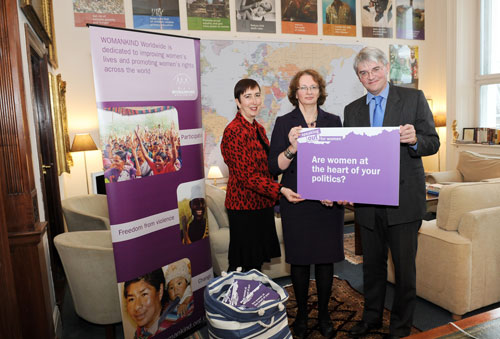 1. All correspondence goes to the correspondence unit. There’s no mechanism to make anyone outside the unit aware of it. However SPADs and Ministers can enquire about what the public’s writing in about, and SPADs in particular are likely to make sure they do as a good way to keep in touch.
1. All correspondence goes to the correspondence unit. There’s no mechanism to make anyone outside the unit aware of it. However SPADs and Ministers can enquire about what the public’s writing in about, and SPADs in particular are likely to make sure they do as a good way to keep in touch.
2. Ministers will sign and read replies to letters or emails from MPs, and usually from directors of NGOs (sometimes from other senior staff) and will also read the incoming correspondence at the same time. That’s the only correspondence they’ll usually see.
3. The department may choose to post a reply to a public campaign on its website, usually if a SPAD says they should. That’s a good way to see what they think is worth taking notice of.
4. It works well for an NGO CEO to write to a minister to say how many campaign messages they’ve received and say what they’re asking the minister to do.
5. Hand-ins are a very good way to get a minister’s attention, if something is personally handed over to them. They’re more likely to agree if they think the photo will get good media coverage, and if there’s a celebrity involved, or someone who is seen as a celebrity by a particular audience. A hand-in with no minister present won’t come to a minister’s attention (unless you got media coverage for it).
What other insights do readers of the blog have about how to ensure your campaign postcards get noticed after a handover?
